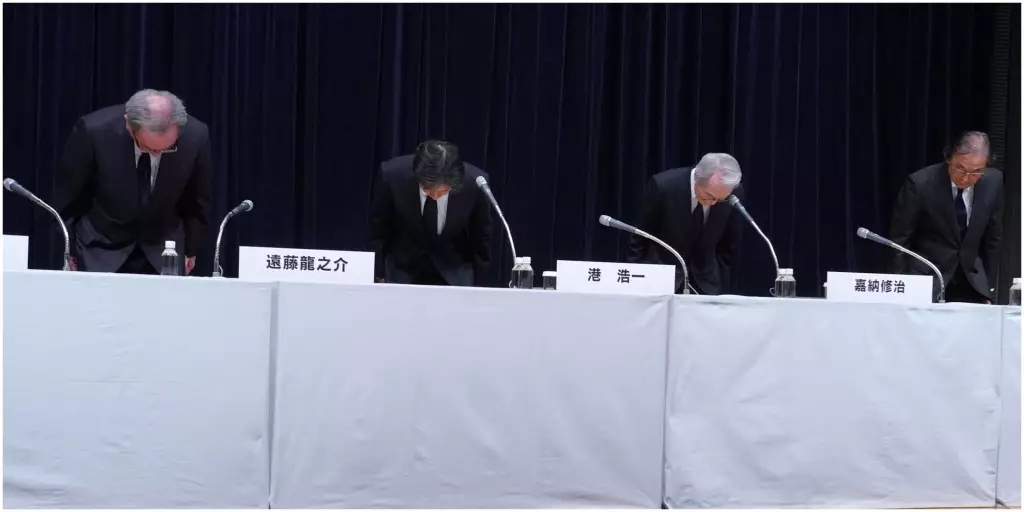In a significant shake-up for Japan’s media landscape, Fuji TV has witnessed the resignation of its Chairman and President over a deeply troubling sexual misconduct scandal involving prominent TV presenter Masahiro Nakai. This incident has not only captured the attention of the nation but has also triggered a broader conversation about accountability, ethics, and the treatment of women within the Japanese entertainment industry. As a response to the allegations, Fuji TV’s chair, Shuji Kano, and Koichi Minato, head of Fuji Media Holdings’ television division, have stepped down amid growing public outrage and advertiser withdrawal.
The allegations against Nakai revolve around an incident at a network-arranged dinner in June 2023, where he was accused of sexually assaulting a woman. Reports indicated that Fuji TV executives were aware of the incident but chose not to act, ostensibly prioritizing the victim’s privacy and recovery over transparency. This decision, however well-intentioned, has sparked severe backlash, culminating in the withdrawal of advertisements from multiple companies, indicating a serious erosion of trust among Fuji TV’s key stakeholders. Compounding this crisis is the fact that Nakai continued to be featured on various programs, which has infuriated advertisers and the public alike, leading to a significant reputational threat to the network.
In light of this fallout, newly appointed Executive Vice President Kenji Simizu has vowed to overhaul the network’s approach to such incidents, promising a “fresh start” and an unwavering commitment to human rights. His statements suggest a paradigm shift in how Fuji TV intends to handle allegations of sexual misconduct moving forward. The establishment of a third-party committee to conduct a comprehensive investigation into the leadership’s handling of the Nakai case illustrates an acknowledgment of past failures and a desire to rebuild credibility within the industry. The results of this inquiry are anticipated to be released by the end of March 2024, representing a critical turning point for the network and its executives.
The Japanese government has urged Fuji TV, one of the country’s largest commercial broadcasting networks, to take decisive steps to restore public trust. The swift resignation of executives Kano and Minato could be perceived as an initial, albeit necessary, measure to signal a commitment to accountability. Furthermore, this incident is taking place in a broader societal context, where issues of sexual misconduct and abuse of power have been brought to light in recent years, following revelations about other high-profile figures in the entertainment industry. Local media outlets have reported that stakeholders, including advertisers and shareholders, are taking an assertive stance on demanding ethical standards.
As the investigation unfolds, the need for transparency cannot be overstated. Both the media and public demand accountability, particularly in cases involving predatory behavior by influential figures. This scandal not only underscores the importance of responding appropriately to allegations of sexual misconduct, but it also emphasizes the dire necessity for a cultural shift within the entertainment industry at large. Prominent figures like Nakai, who have previously enjoyed untouchable stature, must be held accountable, setting a precedent for how similar cases are treated in the future.
Nakai’s future in the television industry remains uncertain following his resignation from show business amid the allegations and scrutiny surrounding him. The implications of this scandal extend beyond Fuji TV and Nakai; they serve as a call to action for the entire Japanese entertainment industry to reevaluate its practices and policies regarding misconduct. If meaningful reforms are implemented, it could signal the beginning of a more equitable environment for workers in media—a critical step towards restoring public faith and fostering responsible industry standards. As these events unfold, observers will be keenly watching to see if Fuji TV and the broader entertainment sector can navigate these tumultuous waters and emerge with renewed integrity and respect for all individuals involved.

